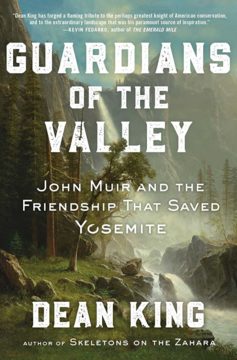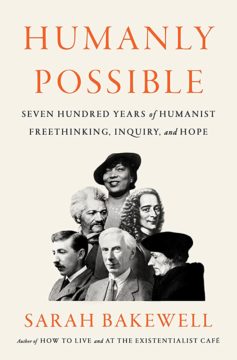Mary Ann Gwinn at the LA Times:
 John Muir and Robert Underwood Johnson were unlikely allies in the war to preserve Yosemite. Muir, son of a Scripture-quoting Scottish immigrant father, was raised poor on a Wisconsin farm, but he wrote and spoke with the fervor of a prophet, and his craggy visage, tough constitution and unshakable devotion to the natural world drew admirers like a magnet. The urbane and cultured Johnson was an insider with a vast network of contacts in publishing and politics. The editor of one of the country’s preeminent magazines, Johnson hosted New York literary salons, mingled with America’s elite and eventually became the U.S. ambassador to Italy.
John Muir and Robert Underwood Johnson were unlikely allies in the war to preserve Yosemite. Muir, son of a Scripture-quoting Scottish immigrant father, was raised poor on a Wisconsin farm, but he wrote and spoke with the fervor of a prophet, and his craggy visage, tough constitution and unshakable devotion to the natural world drew admirers like a magnet. The urbane and cultured Johnson was an insider with a vast network of contacts in publishing and politics. The editor of one of the country’s preeminent magazines, Johnson hosted New York literary salons, mingled with America’s elite and eventually became the U.S. ambassador to Italy.
It was improbable that they even met — Muir was on the West Coast, Johnson on the East.
more here.

 “I am human, and consider nothing human alien to me”: The famous line from the Roman playwright Terence, written more than two millenniums ago, is easy to assert but hard to live by, at least with any consistency. The attitude it suggests is adamantly open-minded and resolutely pluralist: Even the most annoying, the most confounding, the most atrocious example of anyone’s behavior is necessarily part of the human experience. There are points of connection between all of us weirdos, no matter how different we are. Michel de Montaigne liked the line so much that he had the Latin original — Homo sum, humani nihil a me alienum puto — inscribed on a ceiling joist in his library.
“I am human, and consider nothing human alien to me”: The famous line from the Roman playwright Terence, written more than two millenniums ago, is easy to assert but hard to live by, at least with any consistency. The attitude it suggests is adamantly open-minded and resolutely pluralist: Even the most annoying, the most confounding, the most atrocious example of anyone’s behavior is necessarily part of the human experience. There are points of connection between all of us weirdos, no matter how different we are. Michel de Montaigne liked the line so much that he had the Latin original — Homo sum, humani nihil a me alienum puto — inscribed on a ceiling joist in his library.